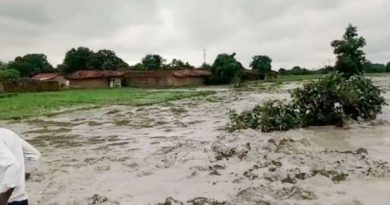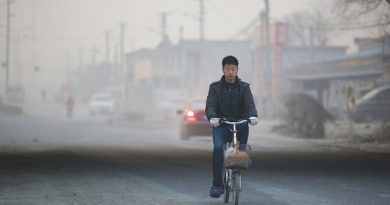For Pakistan, Reality Bites on Both Urban and Forest Front
 Missing The Woods, And The Trees in Karachi
Missing The Woods, And The Trees in Karachi
Pakistanis are justifiably proud of its cultural capital Lahore, one of the country’s key cities, and a picture of decent planning and well maintained greenery by south Asian standards. However, the problem for the country remains Karachi, the country’s key port and commercial hub which has again been rated amongst the world’s least liveable cities by the Economist Intelligence Unit’s (EIU) Global Liveability Index 2019.
The index rates 140 cities on a 100 point scale using a range of factors such as living standards, crime, transport infrastructure, access to education and healthcare, as well as political and economic stability. For 2019, Karachi has been ranked 5th from the bottom, or number 136. It is trailed by Damascus in Syria, Lagos in Nigeria, Dhaka in Bangladesh and Tripoli in Libya. Karachi’s overall rating was 40.9, dragged down particularly by its stability rating of just 20.0.
For Indian cities covered by the index, the news is not any better with national capital New Delhi slipping all the way to 118 from 112 last year dragged down by the impact of climate change, a factor considered for the first time this year. New Delhi’s high air pollution and poor water planning were cited among other reasons for the drop. Mumbai, the country’s commercial hub, slipped from 117 in 2018 to 119 this year.
The leaders in the list have seen relatively few changes with cities from western Europe and North America dominating the top tier, with two standout entries from Australia – Melbourne and Sydney at no. 2 and 3. Vienna, the Austrian capital which had toppled Melbourne last year, retained its lead. Eight of the top 20 spots have gone to European cities with Japan, Australia, Canada and New Zealand rounding off the top 20 list.
Global hubs like London and New York continue to languish beyond rank 40 thanks to increasing perceptions of risks from crime and terrorist attacks.
The other blow for Pakistan came from its High Court in Lahore which observed yesterday that the annual deforestation rate in Pakistan has been recorded as the world’s highest. The deforestation rate in Pakistan has been estimated between 0.2 and 0.5 per cent per annum, risking a four to six percent decline in its wood biomass per annum, the LHC observed.
Written by Justice Jawad Hasan, the judgement cited a research report to observe that the natural forest cover had reduced from 3.59 million hectares to 3.32m hectares at an average rate of 27,000 hectares annually.
The observations come at a time when the Pakistani government has pushed hard to promote its ‘Billion Tree Tsunami’ globally as a major achievement, an initiative started in its North West Frontier Province to plant a billion trees to fight climate change.
The project, started in 2014, has turned out to be a mixed success but the key figure of a billion trees has come under a cloud with its own state government figures contradicting the claims of the ruling federal government of Prime Minister Imran Khan. The high court judgement, while it has focused on its Punjab province, is a pointer to the frightful situation the country has created for itself when it comes to managing its natural resources effectively.
Many experts, of course, have repeatedly stressed that the roots of key tensions in the region lie in Pakistan’s dreadful handling of its water resources where it is increasingly desperate to have better control over the source which lies in areas controlled by India, be it the river Jhelum in Kashmir, or even the Indus.
The groundwater table in Punjab, somewhat like the Indian Punjab, has been driven down by unsustainable extraction leading to water diversion from other provinces creating further tensions between provinces in the country where Punjab is seen as having an overbearing influence and claim on national resources over the claims of other provinces.
Even China’s Belt and Road Initiative, the massive infrastructure gravy train for which Pakistan has rolled out the red carpet as a staunch Chinese ally, has been raising questions over the sustainability of the project finances as well as impact on the environment. The lack of control over this impact the project will have is probably laying the seeds for future conflicts with local communities even now.




